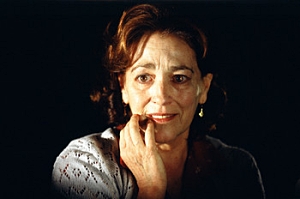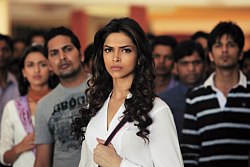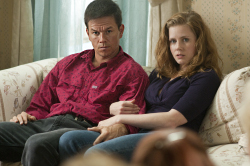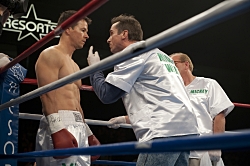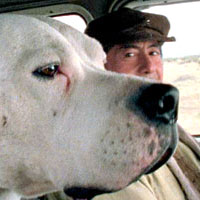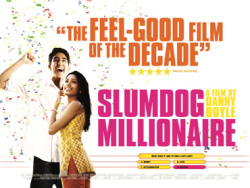Pedro Almodovar – Director
Since he began making shorts over thirty years ago, Pedro Almodovar has emerged as one of Europe’s leading directors with such contemporary classics as All About My Mother and the Oscar-winning Talk To Her. Yet more so than any other before it, the Spanish auteur’s latest film Volver — which won him Best Screenplay at the 2006 Cannes Film Festival — is a work steeped in personal nostalgia. Set in a small village in La Mancha, where he grew up, Almodovar was particularly influenced by his own mother when writing the story. In particular, he drew from her when creating the character of Abuela Irene, the deceased matriarch who inexplicably returns to her family home to settle her affairs with her two daughters, Raimunda (Penélope Cruz) and Sole (Lola Dueñas). Yet if it’s a film about ghosts, then it’s only appropriate that the director should be haunted by one of his own, with Volver marking the long-overdue reunion of Almodovar with actress Carmen Maura, who plays Abuela. After working with her on six films at the outset of his career — from Pepi, Luci, Bom in 1980 to the international breakout hit that was Women on the Verge of a Nervous Breakdown eight years later — it took 18 years for Almodovar to reunite for a seventh collaboration. As demonstrated by the fact that the Cannes jury decided to award Maura, along with Cruz and the other female member of the ensemble, a joint Best Actress award, it was a wise decision.
Popular on LondonNet
In the press kit, you say it’s very difficult to summarise the film in a few lines. Why?
What I mean is, in two lines or four or five or ten, you have to give the highlights of the plot — and you betray the tone of the movie. And if you tell only the story, without explaining other elements, it looks like something very outrageous. The movie is not represented in just a few lines; the important parts of my movie are the tone, all the characters and the way they are directed. And the way I think I make it believable, something which — in two lines — looks rather unbelievable.
Given the subject of this film, should the title really be All About My Mother?
Maybe All About My Mother — Part 2! In fact, my mother is present in the whole movie. More even here than in All About My Mother. In this case, all the locations were the places that I used to live when I was a child. Her presence here was much stronger. And also because I’m talking about my roots, when I go back to La Mancha, it’s like going back to my mother’s breast. La Mancha is represented for me more than in the language itself or the geographical region; it’s more the memory of my mother. I lived there for my first eight years, and my mother brought with her La Mancha. She was very much from that place, and she always spoke in the way they talked in La Mancha. There, we have a very special way of talking — we have a dialect that is very specific to that place. My mother always talked like that, so she always represented to me La Mancha.
Women are a constant in your films — why?
I did films with men like Bad Education, that have only men in them, and also Law of Desire, where Carmen Maura played a man. But it’s true that women tend to be at the centre of my movies. I don’t know why. Probably because women are also more interesting as a subject to develop a story about. I wouldn’t say that women and men have different problems; they have the same problems, they have the same joys and they have to also suffer the same things. But I think women have more freedoms to express their feelings and emotions. They are less shy and have less prejudice too. I think women can surprise us much better, probably because for centuries women were forced to live in silence in the shadows. So they have that capacity to surprise us much more. I find them more interesting as a subject matter to develop a story. When I started writing the script of Volver, I knew I wanted to write only about a female universe. And because this film is related to the memory from my childhood…when I grew up, I was surrounded by women: men were not there.
Carmen Maura said that since you last worked together, some 18 years ago, you have become more serious and more worried about life. Is that true?
I think that goes along with the fact that we are getting older and that’s also related to the march of time. When I was working with Carmen in the 1980s, my life is completely different to the one I have now — I wouldn’t say ‘opposite’, but definitely completely different. I was going out a lot, particularly at night. I was surrounded by people and having a great time. I should also say that in those days Spain was booming. It was the beginning of Democracy, and I was a product of that new Spain. I was young, so I could enjoy that very much and live that new freedom. And for me, because I was young, time didn’t exist. Now, it’s completely different. I’m worried by time going by. And this, I should say, is something that’s dominating my thoughts. Now I’m probably much more conscious of time — I have lived more than half of my life. I live it and time goes by so quickly that I wonder what will happen in the next 25 years of my life. I’m afraid that time will go by as quickly as it did before, and I wouldn’t like that to happen. My worry is, ‘Will I have time to be conscious of what I will have to do next?
What dreams do you have for the second half of your life?
I don’t know if I have dreams…but first of all, I would like to live longer than another 26 years! I would like to be able to enjoy every moment of my life. For me, the past doesn’t exist. For me, the only real thing is the present, what I’m living now. The past is something I don’t see. It doesn’t help me. It’s no use for me. I would like to be able to go on doing cinema with freedom and independence. I would like to be able to keep my imagination alive — the same as now — to be able to produce more. I would like to be able to go back to the films I used to do, which had a greater sense of humour. My last five films — the ones that gave me my best reputation — are the ones with more drama and less humour. And I would like very much to be able to go back to that joyful, humorous period of my life that I used to do before. But if I’m not able to go back to those crazy comedies, I would like to go on doing dramas as I’m doing now. Definitely, I would like to go on doing film. And for the future — well, first of all, I would like not to be alone. Second, to be able to do the films I like without suffering any pressure or interference from outside. I would like to be in good health, and also I would like to forget that everything has an end, because for me, at this moment of my life, there is a big crisis. It’s this idea of death. I do not accept death. And I think this is something I show in the film. This is why I have done the film and why I talk about people in La Mancha. People there are completely different from me; for them, death is something from everyday life. It’s something they accept and is something natural — not a tragedy.
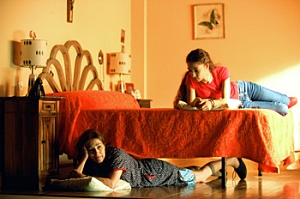 Do you think that Carmen Maura could act as a catalyst for you to return to these “crazy comedies”?
Do you think that Carmen Maura could act as a catalyst for you to return to these “crazy comedies”?
I would like very much to shoot again with Carmen Maura in a film but first I must write a role for her. I would like very much to be able to write a crazy comedy for her. Carmen Maura is someone that has a natural capacity for drama and comedy — and both things at the same time. She has an extreme sense of humour — but it depends on the script I like. When I write a script, it’s an idea that comes to my mind and she takes possession of my mind, and I’m at her service. I write what the idea wants me to write. I’m not the owner of my own stories. These stories are the owner of my mind. It sounds like my brain is taken by an idea.
Why did it take you 18 years to reunite with her?
Well, in fact, at the beginning, we just separated for personal reasons. We broke up. It was a very intense relationship — it was like a couple! We were like three or four years without talking, but after that time, we became friends. And since then, I didn’t really have a part that I thought was right for her — and when I had it, I immediately asked her to do it.
Each time you have worked with Penélope Cruz, her role has got bigger. Did you think she was now finally ready for a lead role for you?
Penélope Cruz, I think, was mature enough for a leading role even when I did All About My Mother. The difference is now I thought that she was at the right age for playing a young mother with a teenage daughter. Penélope is only 31 years old, but she always looks much younger. So in this film, I thought that she has arrived at the point that she was able to play that part — not necessarily because it was the lead but she fitted better the character.
You seem influenced by the Italian women of the ’50s, like Sophia Loren. Is that true?
And is it true Penélope Cruz was too thin originally to play this type of woman, and you changed her figure somewhat?
It’s true that the only false thing in Penélope Cruz in this film is her ass! We had to make her behind bigger. First of all, you’re right — my reference for the character was the Italian movies of the ’50s, where women tended to be plump. So giving her a bigger bottom gave you the impression that she was a woman closer to the Earth. I wanted to change her way of walking. Penélope has done ballet when she was younger and that gave her a very gracious and light way of walking. I wanted her to have more weight, so you could feel the sense of gravity attaching her to the Earth. Another idea for that was she’s a very strong woman — the character she plays is a fighter. She never gives up. And she’s also a mother. So for me, the idea of motherhood, the symbol of motherhood, would be Anna Magnani in Bellissima.
In the film, the females blossom after the men have died…
In La Mancha, men tend to die naturally much younger than their wives. And those women in La Mancha, of course they have a feeling of nostalgia — they miss their husbands. But it also gives them an opportunity to lead their own lives. They have more of a life among women — they see much more of their friends, they have a much more quiet life, a much more peaceful life, a much more feminine life. In this film, Penélope plays a young widower. But she blooms not because she’s widowed but because I decided I wanted her to bloom. I like her very much — she’s very pretty. And I wanted to show that even though she’s a poor woman, a cleaner, and comes from a little village, and has no money, she could also be very attractive. And this is not because she’s lost her own husband but because it was my choice. Also, Penélope has blossomed herself in this moment of her life.
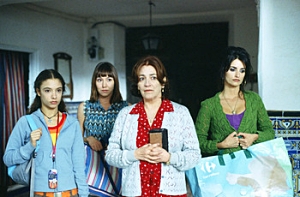 I believe you have also written another role for her…
I believe you have also written another role for her…
There is one script that I have to finish. But until the moment I finish, the character could change. There is one, but I don’t know until I’ve finished. But I’m sure that I’m going to work with her again.
Hollywood will always keep its door open for you. But why do you decide to stay in Spain and work there?
I think it’s a danger when you decide to change the language you speak or your culture when doing a movie. I think, in my case, I would probably lose part of the richness in my films, and also the details that make up them. Another reason that’s probably more important is that Hollywood will probably never allow me to have the same degree of independence and freedom I have now when I do my films. My films are like handicraft work — I intervene in all processes, at all the levels of my filmmaking. In Hollywood, there are many people making decisions — not just the director. So this is why I don’t think I will be able to work in the Hollywood system.
Do you think Cruz has changed a lot since going to Hollywood?
For an actor, it’s something different. An actor can make four movies a year — but for us it’s two years of our life doing a movie. It doesn’t mean it’s more important but it’s much more complicated. Of course, the production system also has an influence in the performers, but much less than on a director. The more important difference for an actor is that they have different access to roles in Hollywood than in other places of the world, particularly if they are actresses. Hollywood mainly has better roles for men, and I think actresses have better films in Europe than the States. The advantage that we have with Penélope is working for three months, rehearsing every day. This is a luxury in Hollywood — I don’t think the actors and director have the time.
On a visual note, there is something red in nearly every frame. Why?
Red is an instinctive choice for me. Of course, I love the colour of red very much. But I suppose I use it because it gives an intensity to the place where you use it. It’s a very expressive colour and in Spain red also represents life, fire, death, blood, passion and carnations — which is the flower-symbol from Spain. But if you ask me a technical question, if you’re filming a night scene, red will give a certain brightness to the scene. And this is why normally I always put a touch of red on my women in a night scene — a cardigan, a sweater or something. Also, this is the reason why all my cars are red in my movies. If you put a red car in the countryside, red enhances the natural colours.
At the beginning of your career, you worked in a telephone company and took some stories away with you concerning those you met there. Is this true?
Not exactly. The type of living I made when I was at the telephone company was very different. I had two lives. In the morning, I was one person and in the afternoon, I was someone completely different. It was crazy — my afternoon life. I was with people making theatre. But what was important for me to work there was that I was in contact with the kind of people from Spanish society that I wouldn’t know without being there. They were not the kind of people that I would like to work with or would like to be related to. It allowed me to gather information about the way of life of the lower middle classes in Spain. And that information was very important for me much later when writing my films. And that was a chance for me, because I would never have that access to that information, if I hadn’t worked at the company.


